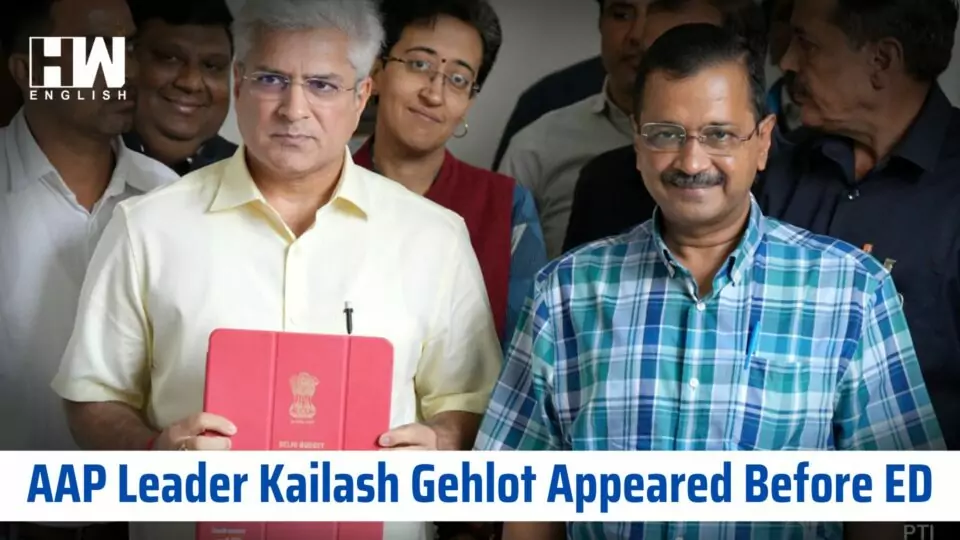Delhi Minister and prominent AAP leader Kailash Gahlot appeared before the Enforcement Directorate today for questioning in connection with an alleged money laundering case linked to the Delhi liquor policy. Kailash Gahlot, who currently holds key portfolios in the Delhi government, including Home, Transport, and Law, was summoned early on Saturday.
This development follows Delhi Chief Minister Arvind Kejriwal’s arrest by the ED on March 21. Kejriwal became the first sitting Chief Minister in independent India to be arrested and remains in ED custody until April 1.
As per reports, ED sources have disclosed that Kailash Gahlot has been called upon to provide his statement under the Prevention of Money Laundering Act (PMLA) in the Delhi government’s excise policy for the year 2021-22.
The ED has alleged that the policy in question offered profit margins, particularly for retailers, reaching nearly 185 per cent, and for wholesalers, around 12 per cent. Furthermore, it is claimed that substantial amounts, over ₹ 600 crores, were siphoned off as bribes, purportedly channelled to finance election campaigns in Goa and Punjab, with allegations of kickbacks totalling ₹ 100 crores being funnelled to the AAP and its leadership.
ALSO READ: INDIA Bloc’s Mega Rally Opposing Kejriwal’s Arrest On March 31
Additionally, the agency has raised concerns about Mr Gahlot’s purported involvement in managing a single SIM number while altering its International Mobile Equipment Identity (IMEI) thrice.
K Kavitha, leader of the Bharat Rashtra Samithi (BRS) and daughter of former Telangana Chief Minister K Chandrashekar Rao, is also currently under ED detention.
Meanwhile, Manish Sisodia and AAP MP Sanjay Singh find themselves incarcerated in Delhi’s Tihar jail, adding to the growing list of high-profile individuals.
The case traces back to a report submitted by Delhi Chief Secretary Naresh Kumar to Lieutenant Governor Vinai Kumar Saxena in July 2022, highlighting alleged procedural irregularities in formulating the Delhi Excise Policy 2021-22. Despite coming into effect in November 2021, the policy was nullified in July 2022.
Two separate cases were registered, one by the Central Bureau of Investigation (CBI) and the other by the Enforcement Directorate; the spotlight remains firmly fixed on the intricate web of allegations surrounding the Delhi liquor policy.
As an independent media platform, we do not take advertisements from governments and corporate houses. It is you, our readers, who have supported us on our journey to do honest and unbiased journalism. Please contribute, so that we can continue to do the same in future.

